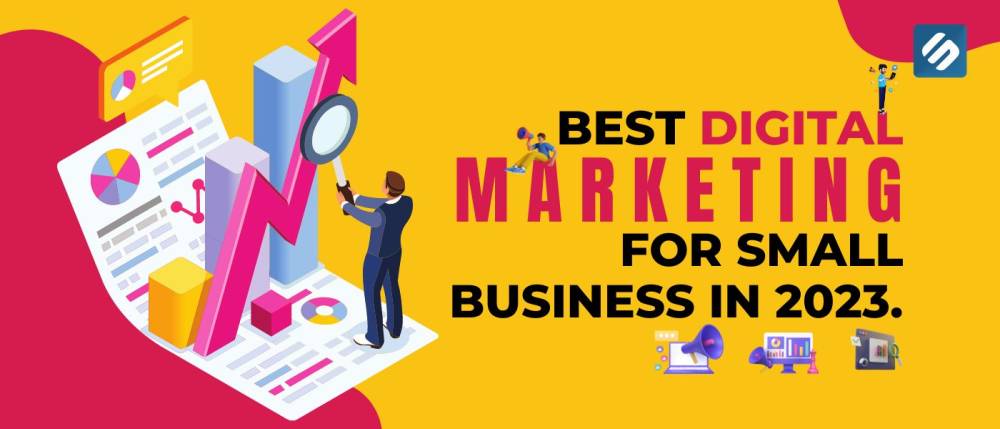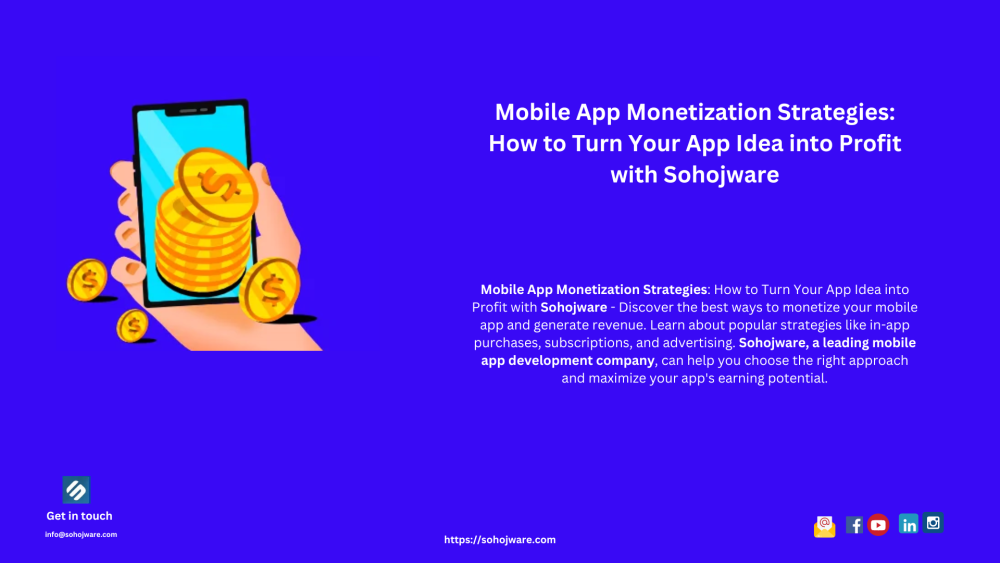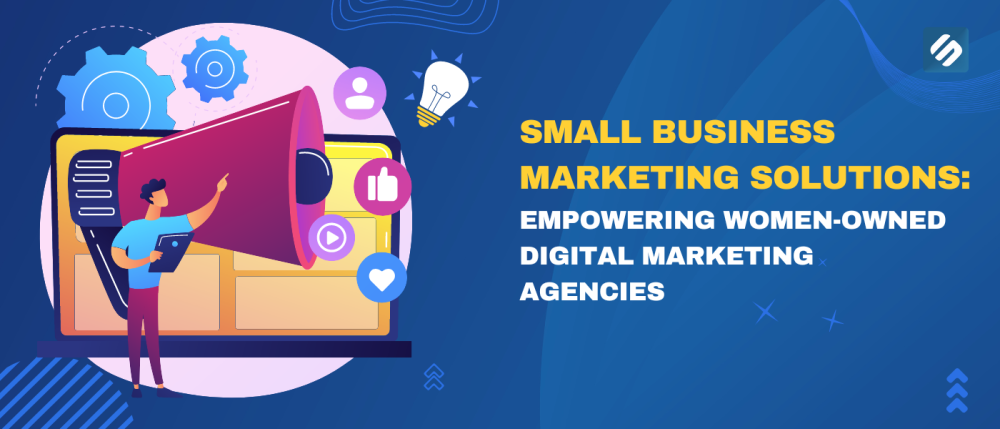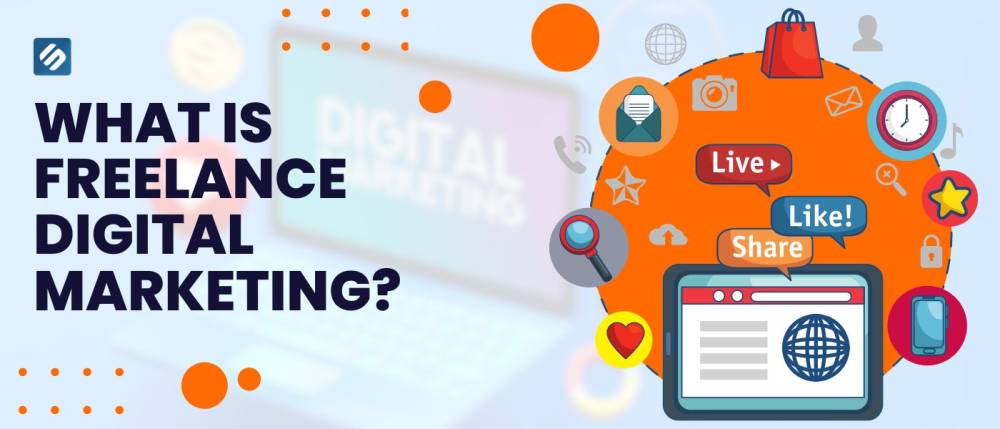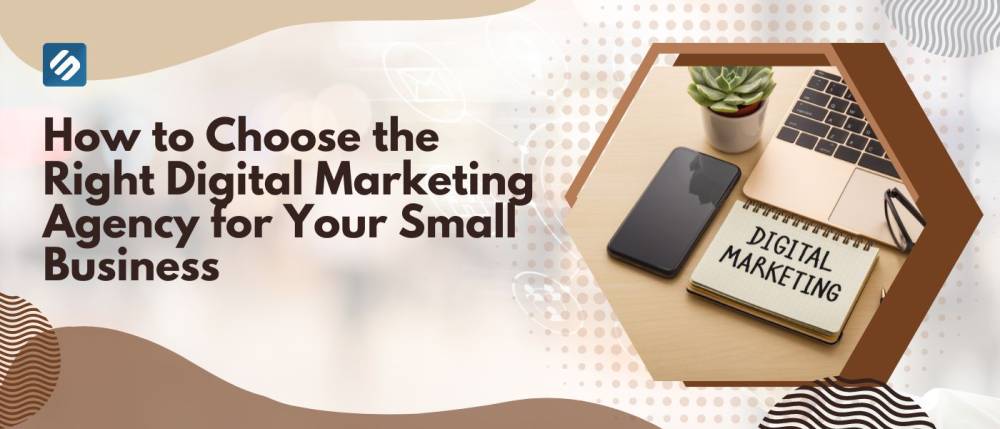Welcome to our comprehensive article on the best digital marketing strategies for small businesses! Digital marketing is a key part of any company’s success and its importance to smaller businesses can not be underestimated. In this article, we’ll be exploring the best digital marketing terms, tactics, and tools available, allowing small business owners to make the most of their online presence.
We'll be looking at how to choose the best digital marketing strategy, how to optimize campaigns for maximum results, and how to measure success. By the end of this article, you will have a better understanding of how to use digital marketing for your small business. Let’s get started!
What is Digital Marketing?
Digital marketing is an umbrella term for the marketing of products or services using digital media, such as the internet, mobile phones, display advertising, and any other digital medium. It encompasses a wide range of activities, including content marketing, search engine optimization, search engine marketing, social media marketing, pay-per-click advertising, email marketing, and online advertising. It involves using resources to reach out to potential customers, build relationships and increase conversions.
Digital marketing has become an increasingly important part of an overall marketing strategy, as more people are turning to their phones, laptops, and tablets to find information, make decisions, and purchase products and services. Companies need to be online to interact with and engage with their customers, and digital marketing can give them access to the right audience.
Digital marketing also allows for real-time monitoring of customers, allowing for better decisions and opportunities for optimizing campaigns. For example, companies can measure the reach and engagement of their campaigns, based on the number of followers, likes, comments, and conversions. Companies can also set targeted campaigns, which allow for more reliable results.
In addition, digital marketing allows companies to better understand and target potential customers more effectively. By analyzing data, companies can create personalized content to engage customers in their marketing efforts, and use it to create a more successful marketing campaign.
Ultimately, digital marketing provides businesses of all sizes with opportunities to connect better with their prospective customers- enabling them to reach more people at a much lower cost than traditional methods. It allows them to track and measure results, making it easier to measure the success of campaigns and optimize their strategies accordingly.
Why is digital marketing important for small businesses?
Digital marketing is extremely important for small businesses as it provides them with an equal footing as larger organizations by allowing them to reach new customers, build brand awareness, promote their products and services and differentiate themselves through online channels.
In today’s digital age, it is imperative for small businesses to have an online presence to remain competitive. For a minimal outlay, digital marketing offers a cost effective way to acquire, engage and convert customers. Without it, small businesses risk being left behind while competitors forge ahead.
There are many types of digital marketing strategies available to small businesses. These include social media, content marketing, email marketing and search engine advertising. All of these options offer the potential to reach more customers, generate brand awareness and drive revenue.
Through focused advertising and engaging content, small businesses can use digital marketing to differentiate themselves from larger competitors. Digital marketing also allows small businesses to track results in real time to better understand consumer buying behaviors and refine their marketing strategies accordingly.
In addition, small businesses are now able to make use of the latest innovations in digital marketing, such as video advertising, programmatic-buying and social media platforms. All of these allow small businesses to stay abreast of current trends and further their reach.
Overall, digital marketing is now an integral part of running a successful small business. It allows businesses to reach customers, increase sales, build their brand and remain competitive in a crowded marketplace. Without it, businesses risk getting lost in the crowd.
What are the benefits of digital marketing?
Digital marketing can be an extremely beneficial and powerful way of getting your business noticed. It offers a range of advantages that can be used to build your brand awareness, increase sales and boost customer loyalty. Here are just a few of the benefits of digital marketing:
Cost-Effective
Digital marketing is far more cost-effective than traditional marketing methods. It can expand your reach quickly, without incurring extra costs in advertising and publicity.
Targeted Reach
Digital marketing can precisely target customers that would most likely be interested in your products and services. This makes it easy to reach out and attract potential customers who would be a good fit for your business.
Measurable Results
Since digital marketing can be tracked and measured, you can measure your campaign’s success quite accurately. This makes it easier to adjust your approach and adjust your budget accordingly.
Opportunity to Connect
Digital marketing gives you a great opportunity to stay in touch with your customers on a regular basis. You can share updates, offers, promotions and even build relationships with your customers through digital marketing.
Highly Versatile
Digital marketing is very versatile and can be used for any kind of product or service. It is also a helpful tool for businesses of all sizes and industries.
Highly Scalable
One of the main benefits of digital marketing is that it can be scaled up or down, depending on your needs. This makes it very flexible and allows you to adjust your digital marketing campaigns quickly to meet changing environments.
Boosts Brand Awareness
Digital marketing can help you build your brand awareness quickly, by making sure your products and services are exposed to your target audiences. This will help you create a stronger presence and reach more potential customers.
Overall, digital marketing has a lot of potential benefits for businesses of all sizes. From cost-effective campaigns to targeted reach and measurable results, digital marketing can help you build a strong online presence that can help your business soar to new heights.
Types of Digital Marketing
Digital Marketing has become a cornerstone in the marketing industry and there's a variety of digital marketing strategies at companies' disposal. Here we will cover the major types of Digital Marketing:
Search Engine Optimization (SEO)
SEO is the process of optimizing a website and its content to increase its visibility in search engine results and ultimately increase its organic traffic. SEO employs techniques to improve the quality and quantity of website traffic, increase brand awareness and reach a target audience.
Pay-per-Click (PPC) Advertising
PPC is an online marketing strategy where companies pay a fee each time one of their ads is clicked. Unlike SEO, which focuses on organic search engine rankings, PPC gives businesses the ability to target potential customers through custom ad campaigns.
Social Media Marketing
Social media marketing is the use of social media platforms to promote a company's products and services. It is a powerful way to reach a wide variety of potential customers and build relationships with an engaged online community.
Content Marketing
Content marketing is the act of creating and sharing valuable content to attract and engage an audience and drive profitable actions. It can include blogs, videos, emails, podcasting, quizzes, webinars, infographics, and more.
Email Marketing
Email marketing is the use of email to promote products or services, and engage with customers. It typically involves sending out a newsletter or promotional emails to customer lists.
Affiliate Marketing
Affiliate marketing is a performance-based marketing strategy where companies pay affiliates to direct customers to their services or products. Affiliates generate leads or sales for the company as a reward for the performance they offer.
Other Types of Digital Marketing
Digital marketing also includes various other forms of advertising such as display advertising, video advertising, and location-based services. As technology continues to evolve, new forms of digital marketing may present themselves in the near future.
There are a variety of digital marketing strategies to explore. Today’s marketer needs to be aware of the different types of digital marketing and how to effectively use them to reach their target audiences and generate leads.
How to Choose the Right Digital Marketing Strategies for your Business
For business owners who want to set their business apart from the competition in the digital realm, choosing the right digital marketing strategies is paramount. Knowing how to choose the right digital marketing strategies for your business can help you maximize the impact of your efforts and maximize ROI.
The following steps can help you choose the best digital marketing strategies for your business:
1. Set Your Goals
The first step in choosing the right digital marketing strategies for your business is to identify and set your goals. Do you want to increase brand awareness? Focus on driving more web traffic? Increase sales? Understanding what you want to achieve will help you develop the most effective digital marketing strategies.
2. Identify Your Target Audience
The next step is to identify your target audience. Knowing who your customers are and what they’re looking for will help you target the right channels and develop strategies to reach—and speak to—your customers.
3. Assess Your Budget
Digital marketing is an investment, and it’s important to determine what kind of budget you can allocate to this effort. This helps you prioritize your strategies so you invest in the areas that will have the most impact.
4. Choose the Right Channels
With your goals and budget in mind, you can begin to identify the right channels for your business. Platforms like email, social media, and SEO are essential for any digital marketing strategy. Depending on your industry and target audience, you may need to consider channels like display ads, video, influencer marketing, and content marketing.
5. Create a Content Calendar
After you’ve identified the channels to use, create a content calendar that includes topics, campaigns, and timelines. This helps keep content organized and on track so you can maximize the impact of your digital marketing.
6. Track Your Results
Finally, track your results. It’s important to monitor progress to understand the effectiveness of your strategies and to make the necessary adjustments to drive the desired results. Tracking your results allows you to identify ROI, and make changes where needed for better success.
By following these steps, you can ensure that your digital marketing strategies are effective and best meet your business goals. By understanding your goals, assessing your budget, and choosing the right channels, you can maximize the impact—and success—of your digital marketing efforts.
Tips for Successful Digital Marketing
Successful digital marketing requires a combination of consistency, creativity, patience, and data-driven decision making. Keeping these qualities in mind, here are a few tips on how you can elevate your digital marketing game:
Be Consistent
Having a consistent presence on various digital platforms is essential for growing your audience. Making sure to post regularly will help you create an engaged online community that will respond positively to your content. Additionally, make sure to be consistent with your branding. Every post should reflect a distinct sense of style that is connected to your brand.
Be Creative
When it comes to digital marketing, there's a lot of room to be creative. Try to think outside the box and employ a variety of tactics and techniques to your digital marketing campaigns. This could include making use of animation or using interactive features in your posts. Experimenting can oftentimes lead to unexpected success or surprising insights.
Be Patient
Digital marketing success takes time. Keep in mind that success often isn't instant. You may go through periods where it may seem like your initiative is not resulting in the desired outcome. Despite this, you should still remain patient and persist in your efforts.
Be Data-Driven
Data gives you insight into how effective your digital marketing campaigns are performing, which makes it invaluable for decision making. Using a variety of data analytics tools, you will be able to collect and analyze information about your audience, which will give you deeper insights into their attitudes and behavior. Utilizing this data allows you to optimize the performance of your campaigns.
Partner with a Professional
If you don't have the time or expertise to do your own digital marketing, you can partner with a professional agency. This can be a great way to get started with digital marketing and to get the results you want.
Following these tips will help you create a successful digital marketing strategy and achieve your objectives. Your digital marketing campaigns should reflect a balance of all of these qualities, which will help propel you towards success. Good luck!
Importance of Having a Website for Small Business
No matter how small your business is, having a website for it is increasingly important in the modern world. It's no longer just the big players who benefit from having a website; even small businesses can see great results with their own page. Here are some of the most important benefits of having a website for your small business.
Increase Visibility
Having a website for your small business will put your brand on the map. By giving customers access to your website, you can make your business’s services and products known to customers and prospects on a global stage. A website is also an excellent tool for improving your search engine optimization (SEO) and helping to attract more customers to your business.
Cost Savings
Having a website for a small business is a great way to save money. With a website, you won't have to invest in large advertising campaigns, as you can do a lot of the marketing yourself. Additionally, setting up a website for a small business is relatively inexpensive, making it an attractive option for business owners who are on a budget.
Expanding Your Reach
Having a website increases your reach beyond physical boundaries. It provides you with an opportunity to reach people beyond your city, or even beyond your country. By targeting customer segments online, you can more effectively reach audiences and increase sales in the process.
Improving Your Brand Image
Having a professional-looking website for your small business helps to create a good impression of your business in the eyes of customers and prospects. A modern website helps to communicate your brand message and values, and helps your business stand out from the competition.
In short, having a website for a small business offers numerous benefits and can help in increasing visibility, saving costs, expanding your reach, and improving your brand image. Investing in a website for your small business is an excellent way to ensure that you will succeed in the digital world.
Creating High-Quality Content for Small Businesses
Creating high-quality content to promote your small business can be a daunting task. Content marketing is an effective way to market your business, increasing brand recognition, driving web traffic, and helping you establish yourself as a thought leader in your industry.
Here are some essential tips to help you create content that is sure to get results:
-
Focus on Quality Over Quantity - Quality is much more important than quantity when it comes to creating content for small businesses. One well-written blog post is more effective than a dozen poorly written posts.
-
Know Your Audience - Before you create any content, it's important to know who you're writing for. Who are your potential customers and why do they need your product or service? Knowing who you're writing for will ensure you create content that resonates with the right people.
-
Generate Unique Ideas - Once you have a good understanding of your audience, it's time to start brainstorming ideas. Look for trends in your industry and explore topics that are relevant to your audience. You can also look at other content creators in your space and find ways to make your content unique and interesting.
-
Make it Visual - One of the best ways to make your content stand out is by including visuals. Whether it's a video, infographic, or a series of photos, visuals can help you engage your audience and keep them interested.
-
Include Calls-to-Action - A call-to-action is an essential part of any content marketing strategy. It should be included in each piece of content to encourage readers to take specific actions like subscribing to your email list, signing up for a free consultation, or downloading a PDF.
Creating high-quality content for small businesses doesn't have to be difficult. With a bit of upfront planning and dedication, you can craft content that will help you reach new customers and grow your business.
How to Use Social Media Effectively
Social media can be a powerful marketing tool for small businesses, helping to reach new customers, drive awareness and generate sales. To maximize the impact of your social media efforts, here are some tips on how to use social media effectively.
Understand Your Audience: Knowing your target audience is the first step to effective social media marketing. With social media, it’s important to understand who you’re trying to reach and how they are most likely to use social media. Once you know this, you can craft social media content that is more likely to be effective and get noticed by potential customers.
Create Different Content For Different Platforms: While it's important to find the right voice and aesthetic on each platform, you should also tailor the content itself to take full advantage of each platform. For example, if you’re a clothing brand, Instagram may be the best place to post lifestyle shots of customers enjoying your products, while Twitter is a great place for quick infographics or behind-the-scenes snapshots of the design process.
Set Goals: Before you begin posting to social media, it’s important to have a plan in place. Decide what your goals are and how you plan to measure your success. This will help you determine what you should focus your efforts on. Having a plan in place also gives you the framework to adjust your approach, so that you’re able to recognize when something isn’t working and make changes.
Use Paid Advertising: Paid social media advertising can be useful in driving traffic to your website or post. With the amount of content posted each day, businesses must use paid advertisements to get their content in front of the right people. Platforms such as Facebook and Twitter now offer ads tailored to reach specific audiences, so your ads can get seen by people who are most likely to be interested in your products or services.
Engage With Your Audience: Social media isn’t just about posting messages. It’s also about engaging with your customers and building relationships. Take time to respond to customer comments and questions, follow others whose posts are relevant to your business, and even re-share content created by customers or influencers. This kind of engagement will help to create a stronger bond between you and your customers and can go a long way towards building your reputation as a trusted brand.
Social media can be an effective tool for small businesses if used properly. Keep these tips in mind and you’ll be able to take full advantage of the power of social media.
How to Measure the Results of your Digital Marketing Efforts for Small Business
It is essential to measure the success of your digital marketing efforts for a small business. Although you may feel it is easier to measure things like physical sales growth or an increase in foot traffic, it is important to have tangible metrics to evaluate your campaigns. Here are some key ways to measure the results of your digital marketing efforts for a small business:
- Track your Website Traffic: Measuring website visitors is a great way to determine how effective your digital marketing tactics are for your small business. With plugins like Google Analytics, you can easily collect data about website visitors such as their engagement rate, location, demographics, and how they found your website.
- Monitor Your Ads Performance: Tracking the response your ads receive is essential for gauging the success of your campaigns. This is especially true with paid marketing, such as PPC. Whenever you run a digital ad, be sure to measure your click rate, conversions, and cost-per-acquisition. This data will help you determine what works best for your small business.
- Use A/B testing: A/B testing is an excellent tool for measuring the effectiveness of your website, ads, and emails. A/B testing allows you to compare different versions of your campaigns to see which performs better. For example, you can send two versions of an email and see which yields the best open rate.
- Monitor Your Social Media Response: Social media marketing is a great way to engage with your target audience. With analytics tools like Hootsuite or Sprout Social, it is easy to track your social media posts and their engagement rates. This data will help you determine which content resonates with your audience and which doesn't.
By using these tips, you will be able to measure the success of your digital marketing efforts and make changes to your campaigns in order to maximize your small business’s ROI.
Digital Marketing Tools and How They Work for Small Businesses
Digital marketing can be an invaluable tool for small businesses, allowing them to reach target audiences quickly and efficiently. Many ready-made digital marketing tools offer features designed to make digital marketing easier and more effective, providing a comprehensive suite of tools adapted to the needs of small businesses.
Popular Digital Marketing Tools for Small Businesses
-
Google Ads: Google Ads is a powerful tool that allows small businesses to reach potential customers with highly targeted ads on the Google search engine and Google partner websites.
-
Email Marketing: Email marketing is a great way to reach and engage potential customers, as well as retain existing customers. It allows you to send personalized emails with offers, discounts and other valuable content.
-
Social Media Ads: Social media platforms like Facebook and Instagram are powerful tools for small businesses to reach their target audiences. Using these platforms, you can create targeted ads that appear in the news feeds of users in your target audience.
-
Content Marketing: Content marketing is an effective way for small businesses to boost their SEO rankings, attract qualified leads, and build relationships with their target audience. It involves creating and sharing consistent, high-quality content that’s aligned with your brand message.
-
Search Engine Optimization (SEO): SEO is a must-have for any small business looking to drive organic traffic to their website. By optimizing your website content for search engines, you can ensure that you appear in the search engine results and are seen by potential customers.
By leveraging these digital marketing tools, small businesses can engage and attract potential customers, drive more organic traffic to their website, and establish a meaningful presence online.
Conclusion
Digital marketing is a powerful system that can help small businesses reach their goals. As the number of people using the internet and social media continues to rise, businesses of all sizes have the potential to reach an expanding audience through digital channels. With careful consideration, businesses can create a successful digital marketing strategy that is both cost-effective and tailored to their specific industry.
With the right approach, digital marketing can be a powerful tool to grow a business and reach their desired target market. With the right strategies and expertise, small businesses can benefit greatly from digital marketing. At the end, it is essential to do research, analyze, and test different approaches to reach the desired goals for a successful digital marketing campaign and business growth.
By following the tips in this article, you can create a successful digital marketing strategy that helps you achieve your goals. Additionally, you can also take advantage of our digital marketing specialist services, specifically tailored for small businesses.
